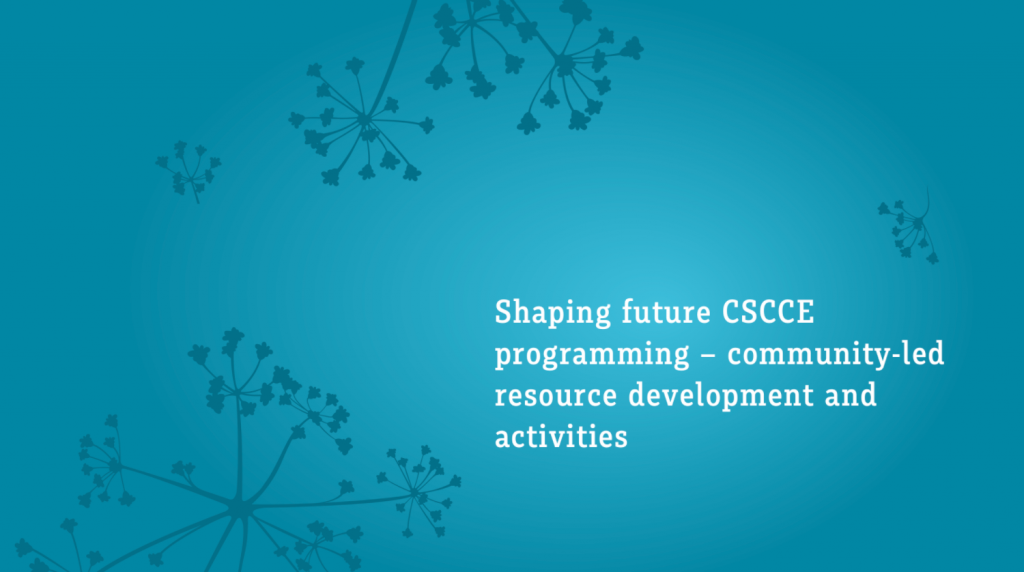Registration is now open for our “Fall” cohorts of Scientific Community Engagement Fundamentals (CEF), Nurturing Online Communities (NOC), and Project Management for Scientists (PMB)!
These trainings will round out our offerings for 2025. This blog post will give you a sense of who each training is designed for and how they connect to the CSCCE Community Manager Certification Program. We’ve also created a new infographic detailing the impact of CEF on our 350+ CEF graduates and the communities they serve. If you’re considering the course, but need documentation to back up your professional development funding request, hopefully this will help!
If you have any questions, please let us know by emailing training@cscce.org.
Continue reading “Training update: Three CSCCE multi-week courses coming up later this year!”


